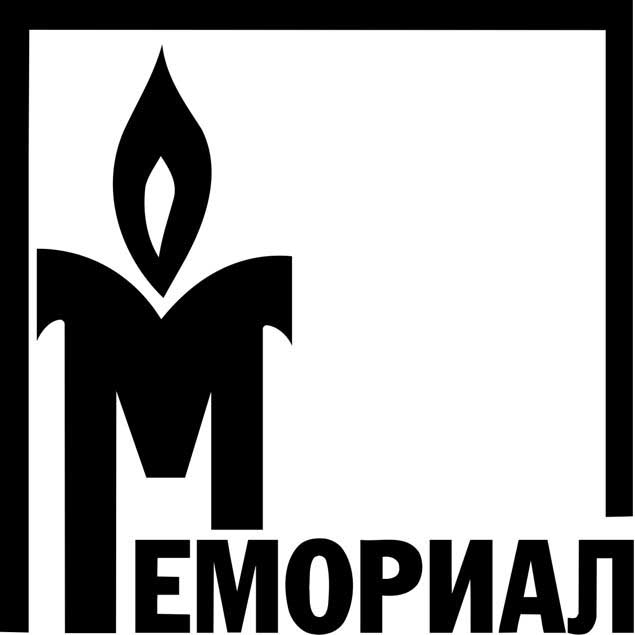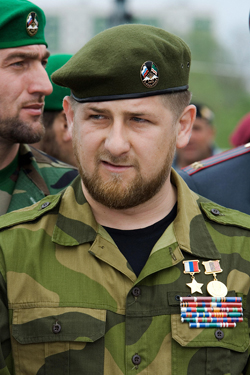Amnesty International has called for the criminal charges to be dropped.
Friederike Behr, Russia researcher for Amnesty International, who attended hearings, says this trial should not happen at all. Defamation laws have no place in criminal law. In addition they should not be used to provide any special protection for public officials, nor should public authorities take part in bringing actions for alleged defamation of public officials.
The information provided at Orlov’s trial sheds light on the threats Natalia Estemirova faced and the dangerous situation she and her colleagues worked in.
Oleg Orlov explained in a court how he considers Ramzan Kadyrov to be responsible for the murder of Natalia Estemirova. He quoted from dozens of statements made by the head of Chechnya himself or his close allies, claiming to have full control over events in Chechnya, justifying unlawful actions against alleged enemies of the state or enemies of the Chechen people and calling human rights defenders, including staff from Memorial, “enemies of the people”.
Kadyrov to be responsible for the murder of Natalia Estemirova. He quoted from dozens of statements made by the head of Chechnya himself or his close allies, claiming to have full control over events in Chechnya, justifying unlawful actions against alleged enemies of the state or enemies of the Chechen people and calling human rights defenders, including staff from Memorial, “enemies of the people”.
According to Friederike Behr, Oleg Orlov also reminded the judge that in his statement, made on 16 July 2009, he said that he did not know if Ramzan Kadyrov had ordered the killing. Rather he took into consideration the strict control Ramzan Kadyrov has over the Chechen Republic as well as the negative attitude Ramzan Kadyrov expressed towards human rights defenders.
Estemirova afraid of Kadyrov?
During earlier hearings, some of the witnesses for the prosecution claimed that Natalia Estemirova did not really work on human rights violations and that therefore no perpetrator of a human rights violation would have had reason to silence her. It has been claimed that she did not engage in the work of the Human Rights Council of Grozny and often during meetings sat in the corner, working on her computer.
In reality Natalia Estemirova tried to use every minute to campaign on behalf of victims of alleged human rights violations in Chechnya. She told how frustrating it was to attend meetings of the Human Rights Council as so little real help for victims of human rights violations came out of these meetings. Of course, she tried to use her time as best as possible, and now, Friederike Behr says, this is being used against her.
Several witnesses were asked if Natalia Estemirova was afraid of Ramzan Kadyrov. Natalia was not the kind of person who would talk much about her fears. She told her closest friends and colleagues about serious threats against her but she did not share her concerns for her own safety widely or ever turned to the authorities asking for protection.
She considered threats against others to be more serious than her own situation. Listening to her friends talking about her, Friederike Behr recalled an incident she told him about when she was thrown out of a government building in Grozny. She made it sound like a funny incident, while journalists who were present there, gave a much grimmer account of how she had been treated.
According to him, prosecution witnesses are using the fact that Natalia did not talk much about the threats she received to claim that she was not threatened in the first place.
Natalia worked on disappearances
Critical public statements made by Chechen government officials, including the Chechen President Ramzan Kadyrov, against human rights defenders and especially against Memorial were quoted repeatedly in court.
including the Chechen President Ramzan Kadyrov, against human rights defenders and especially against Memorial were quoted repeatedly in court.
Andrei Krasnenkov, the lawyer representing Ramzan Kadyrov, repeatedly asks witnesses about Natalia Estemirova’s life in Grozny. The judge admits that she knows very little about Chechnya and listens with great interest, when the witnesses talk about how Natalia lived on the tenth floor of a building without running water and with a lift which did not always work.
A lot of the questioning is about the main cases Natalia Estemirova worked on during the last months of her life; the harrowing case of the public execution of Rizvan Albekov, for instance, and the enforced disappearance of Apti Zeinalov.
Both cases are linked to members of the police. Rizvan Albekov and his son were reportedly first detained by local police from the Kurchaloi District, and Apti Zeinalov was last seen in a hospital, seriously injured and under the guard of people most likely from the local police department in Achkoi-Martan.
There is no information that these cases are being properly investigated – neither as separate criminal cases nor in the context of possible links to the murder of Natalia Estemirova.
Other cases have also been mentioned including the detention and subsequent enforced disappearance of Makhmadsalor Masaev and the case of Umar Israilov, who was murdered in Vienna in January 2009 and for which three Chechen men are currently standing trial in Austria. Both men tried to bring criminal charges against Chechen President Ramzan Kadyrov for having either unlawfully been detained or tortured by him.
Andrei Krasenkov asked several witnesses “Did you know t hat the person you call a refugee, Umar Israilov, was actually wanted in Russia?” The way he phrased the question, one might think he thought it fine to shoot a suspected criminal in the street.
hat the person you call a refugee, Umar Israilov, was actually wanted in Russia?” The way he phrased the question, one might think he thought it fine to shoot a suspected criminal in the street.
Kadyrov – one of the suspects?
Andrei Krasenkov also asked several of the witnesses if they agree with Oleg Orlov’s view that Ramzan Kadyrov is responsible for the death of Natalia Estemirova. Igor Kalyapin, head of the Interregional Committee against Torture from Nizhni Novgorod, responded that Ramzan Kadyrov had asked him the same question when he met with him in February 2010. To which Igor Kalyapin replied “I think you are one of the suspects.”
Igor Kalyapin, who is also the head of the Mobile Group of human rights defenders from different Russian regions, working on serious human rights violations in Chechnya, explains in court that in today’s Chechnya, many law enforcement officials openly state that they are not bound by the laws of the Russian Federation but by the words of Ramzan Kadyrov.
The next hearing will be on 28 March.
Background
Oleg Orlov, Russian human rights defender, had received in December 2009 the European Parliament’s Sakharov Prize for Freedom of Thought.
After the publication of a statement on July 15, 2009  in which Oleg Orlov indicated he believed the Chechen President was responsible for the murder of Ms. Natalia Estemirova, Ramzan Kadyrov had initiated the lawsuit against Orlov.
in which Oleg Orlov indicated he believed the Chechen President was responsible for the murder of Ms. Natalia Estemirova, Ramzan Kadyrov had initiated the lawsuit against Orlov.
On 9 February 2010 Ramzan Kadyrov publically announced that he would drop the criminal proceedings he initiated against Mr. Oleg Orlov.
On 21 January 2010 Oleg Orlov was condemned by the Moscow City Civil Court to pay 20,000 rubles (approximately 460 Euros) in damages to Kadyrov.
Related articles:
CPJ calls for information on Natalya Estemirova murder
Kadyrov drops charges against two human rights defenders but pressure continues
Council of Europe adopted Resolution on the North Caucasus
Condemning the murder of Natalia Estemirova
Nadezhda Nizovkina and Tatiana Stetsura sentenced to a fine
Russian lawyers arrested ahead of freedom of expression campaign


